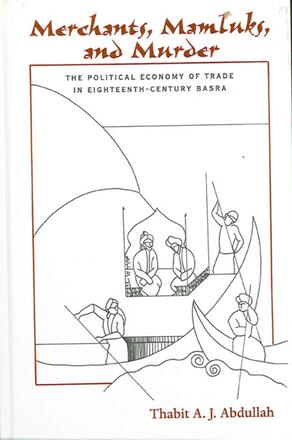
Merchants, Mamluks, and Murder
The Political Economy of Trade in Eighteenth-Century Basra
Alternative formats available from:
A historiography of Ottoman Basra, a trade center in the eighteenth century.
Description
Using the case of the murder of a Jewish merchant in 1791 as the backdrop to this study of Ottoman Basra's long-distance trade in the eighteenth century, Thabit A. J. Abdullah takes a novel comparative approach to Middle Eastern and Indian Ocean historiography. He examines three broad interrelated issues, all of which have a direct bearing on the case of the Jewish merchant. First, the overall nature of Basra's trade is examined; second, the book looks at the city's large wholesale merchants, the tujjar; and the third issue deals with the gradual development in Basra of the "soft areas" in Asian economies through which European articulation, followed by incorporation into the capitalist world economy, took place.
Thabit A. J. Abdullah is Assistant Professor of History at York University. He is the editor of Arab and Islamic Studies in Honor of Marsden Jones.
Reviews
"This is a highly enjoyable, well-written, well-researched work, which is a pleasure to read. " — Journal of Early Modern History
"This work brings to light the extraordinary extent to which Basra and, more generally, southern Iraq were tied to India, both economically and politically. Abdullah's research in Indian archives has broken open a mindset in Ottoman historiography that refused to go beyond the Persian Gulf. In this broader context, the British stake in Basra and Iraq becomes much more comprehensible. " — Jane Hathaway, Ohio State University
"This book brings together a body of information on Basra which has not been compiled to this extent in any other work in the English language. " — Nance F. Kittner, College of St. Joseph
"I am impressed with the very broad compass of the book as well as its personal mapping of some individual merchants' lives and careers. It makes a very strong case for the regionality of Basran trade, and its connectedness with the Indian Ocean, Arabia, and Istanbul in a much understudied period. A terrific amount of secondary literature has been read and incorporated, and the author has made adroit use of archival records of the trading companies of the region. " — Virginia H. Aksan, author of An Ottoman Statesman in War and Peace: Ahmed Resmi Efendi, 1700–1783